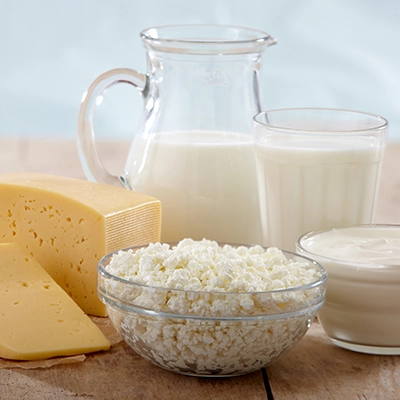What Are Probiotics?
You have likely seen the term “probiotic” on foods and dietary supplements, but you may have wondered what probiotics are or how you might benefit from them.
Essentially, a probiotic is a live microorganism (typically bacteria) that has been linked to health benefits when used in adequate amounts. Probiotics can be in foods, like yogurt, infant formulas, medical foods and dietary supplements.
A core benefit of most probiotics is support for a healthy digestive tract (i.e., gut), which includes creating a more favorable gut environment, which can help with diarrhea caused by medically prescribed antibiotics. Research also supports a wide range of other benefits specific types of probiotics may provide; however the evidence is still evolving. Researching potential benefits of microorganisms is complicated because each class of bacteria -- the most common being Lactobacillus and Bifidobacterium -- has many subtypes or strains that may differ in their effects. For more information see the Practice Guidelines on Probiotics and Prebiotics of the World Gastroenterology Organization.
Yogurt can be a probiotic food. The standard bacteria used to make yogurt, Lactobacillus bulgaricus and Streptococcus thermophilus, have been studied for their ability to help people digest lactose, the sugar in milk, which can benefit people with lactose intolerance. You may have noticed the “live and active culture” seal on the package of some brands of yogurt; this indicates they contain a significant amount of live bacteria still present after the fermentation process is complete. Only live bacteria can help with lactose digestion. However, use of the seal is voluntary, so brands choosing not to use the seal may also contain live and active cultures.
Although fermented foods such as aged cheese, kefir (fermented milk drink), sauerkraut, miso, tempeh, wine and beer are made with microorganisms that sometimes remain alive (check the label), they are not called probiotics because their health benefits have not been well defined or supported with adequate research to date.
There is still much to learn about the potential health benefits of probiotics. They may not work the same for everyone, because each person has a unique eating pattern, combination of microorganisms in their gut and individual health history. Probiotics may be considered safe for some people, but if you have a serious illness, it may be best to check with your doctor before using them.
To learn more, check out the infographics, tips and resources on probiotics from the International Scientific Association for Probiotics and Prebiotics.















